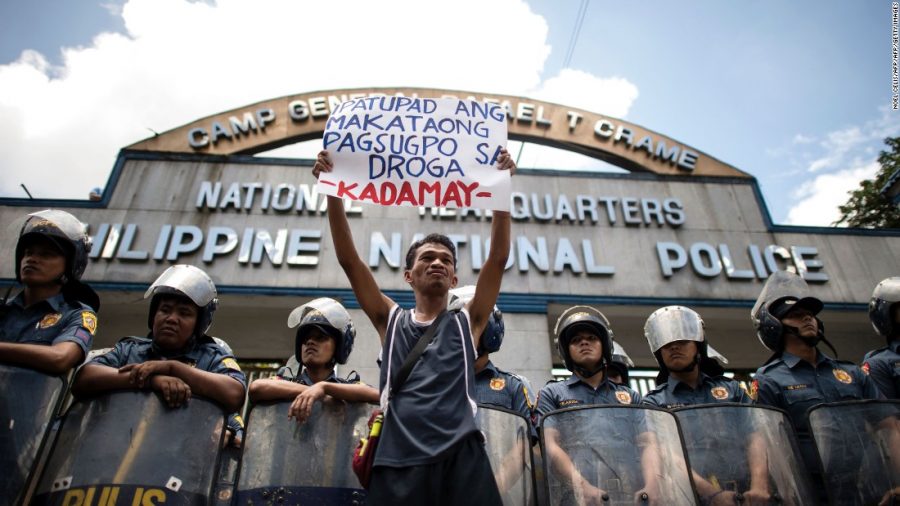Ceasing Crime for a Cost: Philippine President Duterte’s “War on Drugs” Must Finally End
“If I make it to the presidential palace I will do just what I did as mayor. You drug pushers, holdup men and do-nothings, you better get out because I’ll kill you.”
Those chilling words were pronounced by Philippine President Rodrigo Duterte on the eve of his election victory, May 9, 2016. His campaign, a “war on drugs,” was fueled by an enthralling promise that he would terminate criminal activity in the Philippines within three to six months.
Some changes in the Philippines validate Duterte’s success. In Davao, its most common drug is no longer sold on the streets, a methamphetamine strain called shabu. Furthermore, public smoking, the utilization of firecrackers, and driving at more than 19 miles per hour on downtown streets have been successfully prohibited in the city. Consequently, the speed limit enforcement allowed traffic accidents to have declined more than 40 percent since 2013. To some, Duterte appears to be saving lives. Where is the caveat?
According to BBC News, The Commission of Human Rights estimated in December 2018 that the death count for Duterte’s “war on drugs” “could be as high as 27,000.” This already alarming statistic does not account for undocumented mortalities during the Philippine drug war.
Additionally, Reuters accentuates that “at least 129 children have been killed in the Philippines’ four-year war on drugs.” Investigations unearthed that “38.5 percent of the documented child killings were carried out by policemen while 61.5 percent were by unknown assailants, ‘some of them with direct links to the police.’”
Furthermore, Human Rights Watch stresses that the “drug war’s killings in the Philippines in 2020 increased by more than 50 percent during the early months of the pandemic” as the government took advantage of COVID-19 curfews. In The Christian Century, Archbishop Socrates B. Villegas opines that the heartless murders are teaching children “that killing suspected criminals without fair hearing is a morally acceptable way to eradicate crime.”
Fortunately, some action has been underway to impede Durtere from stirring further turmoil. The International Criminal Court is investigating crime accusations committed during the “war on drugs.” Also, The World Organization against Torture (OMCT) and the Children’s Legal Rights and Development Centre pushed the U.N. Human Rights Council to perform an independent commission of inquiry into extrajudicial killings and other crimes in the Philippines in June 2020.
We can help too.
We and the rest of the international community must make our voices heard, declaring that we will not allow fascism, a path that Duterte is heading toward, to take hold in the Philippines again. Furthermore, citizens of the Philippines and elsewhere must actively demonstrate a desire for effective change via rallies, social media, journalism and other platforms. Also, Filipinos need to be educated about Duterte’s dishonorable actions so they will not elect a similar president in the future, considering that Duterte shockingly remains highly popular amongst the Philippine population, with a positive rating of 91 percent. Finally, to lend additional support, please consider donating to Human Rights Watch (https://www.hrw.org/donate-now), the United Nations Human Rights Office of the High Commissioner (https://donatenow.ohchr.org/) and the Movement for Good Governance & Ethical Leadership in the Philippines (https://www.kayanatin.ph/donate/).
As Americans, many of us are fortunate that, to a degree, we can take advantage of the freedom of speech established by our democratic Founding Fathers, lending our voices to those whose voices are suppressed. Hence, we must yield assistance to troubled victims within our nation and elsewhere to conserve the deteriorating ties that link humanity as one. When United Nations experts urged President Duterte to stop the extrajudicial killings, Duterte responded that at least half of the Filipino population is involved in drug-related trades and, given that, he was not going to stop the killings until the population is reduced by half.
Use your voice now to stop him before it is too late.


